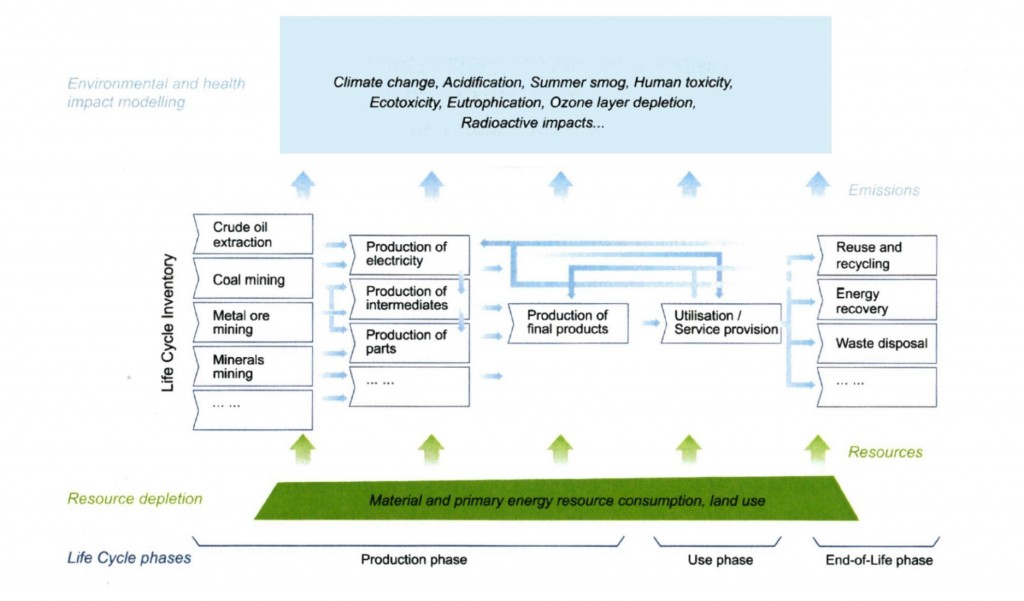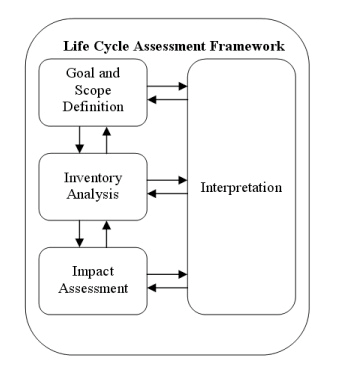Life Cycle Assessment framework for Saudi Aramco
Life Cycle Assessment (LCA) is a process of assembling and analyse the outputs and inputs of energy and materials and determine their environmental impacts throughout the life cycle of a product or service. In the present time, many of the companies are using life cycle assessment method to better understand the benefits and costs of different actions. It helps in improving management decision of the organization (Williams, 2009). LCA is a systematic approach of understand the entire life cycle of a product which starts from raw material and end on disposal of the object.
Saudi Aramco is a Saudi Arabian oil company and belongs to oil and gas industry. Major products of the organization are petroleum, natural gas and many other petrochemicals. It serves across the globe and count in most valuable company in world. Saudi Aramco has large quantity of crude oil reserves and more than 260 billion barrels oil produce on daily basis (Company Overview of Saudi Arabian Oil Company, 2016). At present time, company is looking towards LCA to determine unconventional and alternative fuel technologies so that the negative impact of oil production on environment can be reduced (Life Cycle Assessment of Unconventional and Alternative Fuel Technologies, 2012). LCA process of Saudi Aramco to examine environmental impacts of petroleum, natural gas and many other petrochemicals by considering the major stages of a product life is as follows.

Raw material acquisition: It includes harvesting or acquisition of raw materials and transports it to the manufacturing or production area. For Saudi Aramco, the raw material to extract the gases and oils are oil sands which is called unconventional liquid fuels, gas to liquid fuels and shale gas (Campbell, Beer and Batten, 2011). The traditional methods of extracting the oil and natural gases are considering as a baseline for the new fuel alternatives for comparison purpose. By different drilling methods, production of oil and natural gases improves.
Processing: This stage defines the processing of the raw materials and transport to the processing units. Here, by following the various processes, the raw good has converted into the semi finished product. Saudi Aramco transfer the crude oil from the extraction place to the processing unit where it has refined in different sections of units (Collet, Hélias and et.al., 2011). Along with this, to remove the impurities and other objectives from raw oil, there are different auxiliary facilities install in the plants.
Manufacturing: Here, product manufacture, assemble, pack and transport for the distribution. Saudi Aramco refining the end product and categorize into different segments such as petroleum, natural gas and other petrochemicals like automotive and rail-road diesel fuels, residential heating fuel, Naphtha etc (Stephenson, Kazamia and et.al., 2010).

Product life: It includes energy and emissions of the product which require maintenance and reuse. The shelf life of the petrochemical products is start from couple of days to couple of years. Petrochemical products which has developed by Saudi Aramco are petroleum, natural gas and many other petrochemicals (Burnham, Han and et.al., 2011). The shelf life of petroleum is couple of years because it is more refines and less sticky as compare to diesel. So, company is using large chemical stabilisers to preserve fuels for the long time.
Instant Assignment Help Australia is the best assignment writing service provider for university students in Australia. Our professional expert writers are capable to provide writing services like nursing assignment help, law assignment help, accounting assignment help, university assignment help, marketing assignment help, and many more.
Waste management: Here, the remaining raw material recycles to make it more useable. Saudi Aramco has produced different useable products from the waste of refine crude oil. It is done for managing the waste by recycling and effective use of limited resources (Bribián, Capilla and Usón, 2011). The products which are producing by company from the wastage of crude oil are Gasoline, Motor Oil, Sulphur, Liquefied petroleum gas etc.
You may also like to read:
- Earthquake In Nepal
- 5 Points on Workplace Rights & Responsibilities
- 5-Task Formula to Manage Business Document Design & Development Answers
- 3 Types of Tasks Covered Under CHCCOM005 Assessment
- Elements and Performance Criteria to Provide Care for Children
- How to Develop Workplace Policy and Procedure for Sustainability?
REFERENCES
Books and Journals
- Bribián, I. Z., Capilla, A. V. and Usón, A. A., (2011). Life cycle assessment of building materials: Comparative analysis of energy and environmental impacts and evaluation of the eco-efficiency improvement potential. Building and Environment, 46(5), pp.1133-1140.
- Burnham, A., Han, J. and et.al., (2011). Life-cycle greenhouse gas emissions of shale gas, natural gas, coal, and petroleum. Environmental science & technology, 46(2), pp.619-627. Campbell, P. K., Beer, T. and Batten, D., (2011). Life cycle assessment of biodiesel production from microalgae in ponds. Bioresource technology, 102(1), pp.50-56.
- Collet, P., Hélias, A. and et.al., (2011). Life-cycle assessment of microalgae culture coupled to biogas production.Bioresource technology, 102(1), pp.207-214.
- Stephenson, A. L., Kazamia, E. and et.al., (2010). Life-cycle assessment of potential algal biodiesel production in the United Kingdom: a comparison of raceways and air-lift tubular bioreactors. Energy & Fuels, 24(7), pp.4062-4077.
Online
- Company Overview of Saudi Arabian Oil Company. (2016). [Online]. Available through: <http://www.bloomberg.com/research/stocks/private/snapshot.asp?privcapId=1241120>. [Accessed on 4th March 2016].
- Life Cycle Assessment of Unconventional and Alternative Fuel Technologies. (2012). [Online]. Available through: <https://cpc.kaust.edu.sa/Pages/News-May-2012.aspx>. [Accessed on 4th March 2016].
- What is Life Cycle Assessment (LCA)?. (2014). [Online]. Available through: <http://eplca.jrc.ec.europa.eu/?page_id=43>. [Accessed on 4th March 2016].
- Williams, A., (2009). Life Cycle Analysis: A Step by Step Approach. [PDF]. Available through: <http://www.istc.illinois.edu/info/library_docs/tr/tr40.pdf>. [Accessed on 4th March 2016].












